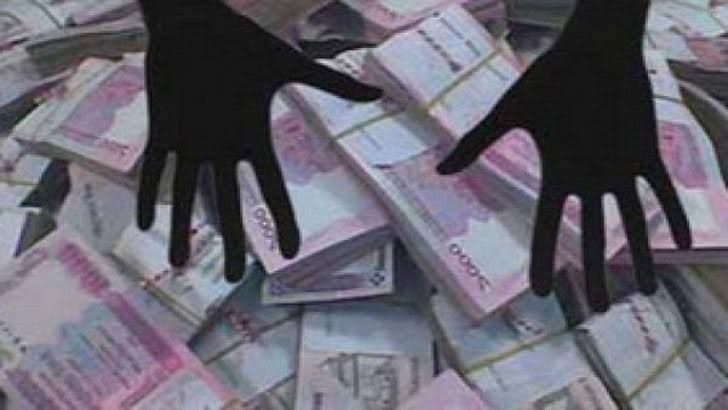
Bismillaher Rahmanir Rahim.
Assalamu Alaikum Wa Rahmatullahi Wa Barakatuhu
Dear Companions Today I want to share with you some words about the evils of killing foetuses.Welcom to this post and congratulations to all.
National money being smuggled out of the country is enough to bankrupt a country, discuss in detail how to bring some of this money back, what will be the benefit of the country if it can be brought back
The illegal transfer of national money out of a country, often referred to as capital flight or money laundering, poses a significant economic threat. It can lead to a depletion of foreign reserves, reduction in investment, increase in corruption, and overall instability in the financial system. If left unchecked, it can even drive a nation to bankruptcy. Repatriating these funds is not only a financial necessity but also a strategic move to restore economic sovereignty and trust in the nation’s economy.

source
Understanding the Problem: Causes and Consequences
Money is smuggled out of a country through various means, including illegal banking channels, fake business transactions, trade misinvoicing, tax evasion, and offshore investments. The primary reasons behind such activities include:
Corruption: Public officials and corporate executives often siphon money out of the country to avoid scrutiny and taxation, hiding it in secret accounts or shell companies in tax havens.
Political Instability: Uncertain political environments and weak governance lead individuals to secure their wealth in more stable and secure locations outside the country.
Tax Avoidance: High tax rates drive businesses and wealthy individuals to move their assets offshore to minimize their tax burden.
Lack of Financial Transparency: Countries with weak regulatory frameworks make it easier for criminals to launder money and transfer it to other jurisdictions.
The consequences of money leaving the country can be severe, including:

source
Decreased Investment: Loss of funds reduces the capital available for investment in infrastructure, healthcare, education, and other critical sectors.
Depreciation of Currency: With less foreign currency in circulation, the national currency may lose value, leading to inflation and increased cost of living.
Reduced Economic Growth: A weakened financial system makes it difficult for the economy to grow and for new businesses to thrive, limiting job creation and development.
Strategies for Bringing Back the Smuggled Money
International Cooperation and Agreements
Countries must work together through bilateral or multilateral treaties to share information on illegal financial flows and money laundering. Institutions like the Financial Action Task Force (FATF) provide a platform for countries to cooperate in tracking illicit money.
Automatic Exchange of Information (AEOI) agreements allow countries to automatically share financial data about individuals and entities with assets in foreign banks, making it harder for them to hide illicit funds.
Implementing Strong Anti-Money Laundering (AML) Laws

source
Strengthening AML laws and ensuring strict compliance is essential. This includes monitoring banks, financial institutions, and businesses to detect suspicious transactions and financial activities.
Know Your Customer (KYC) regulations should be enforced to ensure financial institutions verify the identity of clients, reducing the risk of anonymous transactions.
Asset Recovery Initiatives
Forming specialized units dedicated to tracking and recovering smuggled assets is crucial. These units can work with international organizations like the United Nations’ Stolen Asset Recovery Initiative (StAR) to trace and repatriate funds.
Legal Action: Countries can pursue legal measures against those responsible for transferring money illegally, including seizing their assets, imposing heavy fines, and prosecuting them under national and international laws.
Incentivizing Voluntary Repatriation
Governments can introduce schemes that incentivize individuals and businesses to voluntarily repatriate their offshore funds. These could include reduced penalties, tax amnesty programs, or other legal concessions to encourage the return of capital.
Providing a period of amnesty or tax relief for those who bring back their money and invest it in productive sectors of the economy can be a powerful motivator.
Leveraging Technology and Data Analytics

source
Using advanced data analytics, artificial intelligence (AI), and blockchain technology to track financial flows and identify irregular patterns in transactions can help in detecting money laundering and capital flight.
Developing databases that compile global financial records and transactions can assist in tracing funds, reducing the loopholes that allow money to be hidden offshore.
Potential Benefits of Repatriating National Money
Economic Stability and Growth
Recovering smuggled money can lead to a more stable economy with increased liquidity. The returned funds can be invested in public infrastructure, healthcare, education, and technology, stimulating economic growth.
Investment in sectors that generate employment will reduce the unemployment rate, enhance productivity, and improve the overall standard of living.
Strengthening the Currency and Reducing Inflation
When illicit money is brought back, it increases the foreign exchange reserves of the country. This, in turn, strengthens the national currency, making imports cheaper and controlling inflation.
A strong currency also makes the country more attractive for foreign investors, increasing their confidence in the stability of the economy.
Improving Governance and Reducing Corruption

source
The process of tracking and repatriating money involves legal reforms and improved governance mechanisms. It helps to increase transparency and accountability in both the private and public sectors.
Reduced corruption will lead to a fairer allocation of resources, making sure that public funds are used for the country's development rather than being misappropriated.
Enhanced International Reputation
A country that effectively combats money laundering and corruption gains a better standing in the international community. This can lead to increased foreign aid, trade agreements, and investment opportunities.
Countries known for their strict financial controls and ethical business practices attract more multinational corporations looking for stable environments to operate in.
Fostering National Development
Recovered funds can be channeled into national development projects, such as building roads, schools, hospitals, and other critical infrastructure, which directly improves the quality of life for citizens.
It also creates a trickle-down effect in the economy, leading to increased business opportunities, greater demand for goods and services, and overall prosperity.
source
The smuggling of national money out of a country poses a severe threat to economic stability, social development, and national security. To address this issue, countries must adopt a multi-faceted approach that includes international cooperation, legal reforms, technological advancements, and incentives for voluntary repatriation. The benefits of recovering these funds are vast, ranging from economic growth and currency stabilization to improved governance and international standing. By taking decisive action to bring back the smuggled money, a nation can secure a more prosperous and stable future for its citizens, driving sustainable development and fostering economic resilience.